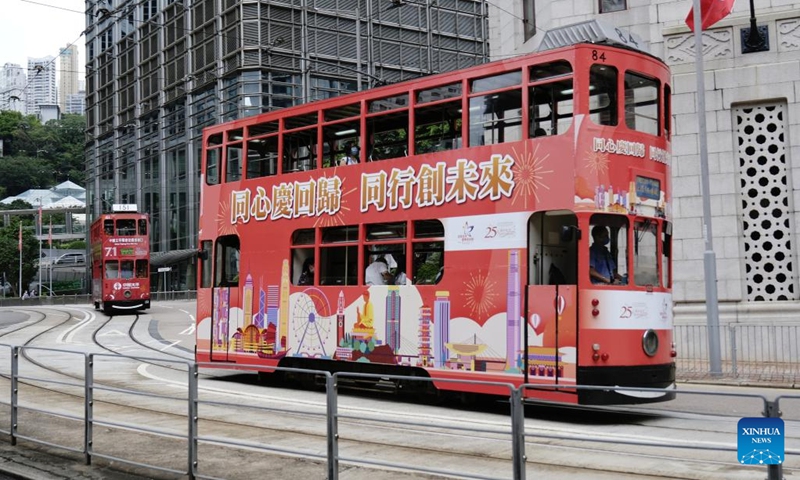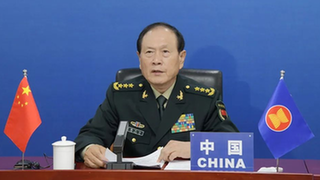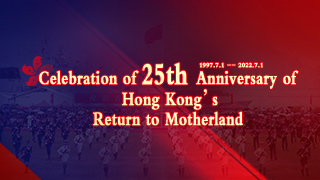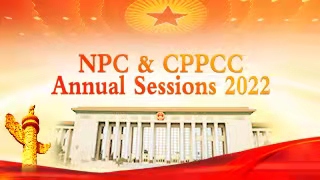
By Mark Blacklock
The 1984 Sino-British Joint Declaration, which underpinned the subsequent handover by enshrining Deng Xiaoping's vision of "one country, two systems," promised to preserve Hong Kong's way of life, judicial system and a high degree of autonomy for 50 years. We are halfway into that half century.
There are those in Hong Kong who believe their rights are being denied because this declaration has not enabled the special administrative region to move more towards a Western form of governance. In Beijing, the challenges to its authority are seen as a challenge to China's sovereignty. As former Hong Kong leader Leung Chun-ying said recently: "You can't say 'We want to have a high degree of autonomy and you stand aside' - that will be de facto independence of Hong Kong."
There is no greater cheerleader for this anti-China stance than the United Kingdom itself, whose disingenuous and hypocritical attitude towards Hong Kong reeks of patronising colonialism.
It feigns concern for citizens of a place once under its colonial rule, and has already resettled 88,000 of them in Britain (though only for five years) under a special £42m scheme. It seems generous, but when people seek refuge in the UK after fleeing wars in places like Iraq and Afghanistan, the consequence of British foreign policy, they are shipped instead to Rwanda against their wishes and despite the criticism of the United Nations, it is fair to ask whether the more favourable treatment of Hongkongers is largely political posturing for the purpose of attacking China.
It is ironic that Britain is behaving as if it still exerted influence in Hong Kong, 25 years after a ceremony which is widely regarded as marking the end of the British Empire: although empire had legally ceased to exist, it was only in 1997 that the diminished status associated with the loss of its last significant colony finally struck home. But the ties that bind Britain, or at least its politicians, to the past seem hard to break.
Last August, Lord Reed, the president of the UK Supreme Court, said "The judiciary in Hong Kong continues to act largely independently of government and their decisions continue to be consistent with the rule of law." Yet in March this year, two of the UK's judges resigned from Hong Kong's top court, following their discussions with Dominic Raab, the UK Lord Chancellor and justice secretary. This was a blatant political interference in judicial matters, which Britain's unwritten constitution is supposed to avoid.
The UK's Foreign Secretary Liz Truss spoke about the law-making process of Hong Kong as being "not aligned with UK values" and that she had "a duty to speak out" as if Britain had some kind of proprietorial rights over matters 6,000 miles from London. She further responded by suspending an extradition treaty and extending a trade embargo on China to Hong Kong.
Part of the problem may be that there still exists for some in Britain - and perhaps in Hong Kong - a romanticised view of Hong Kong under British rule.
At the time of the handover, attended by Prince Charles, the last governor Chris Patton - now Lord Patton, an unelected member of Britain's upper legislative house and a member of the current ruling Conservative Party - claimed Britain provided "the scaffolding that enabled the people of Hong Kong to ascend: the rule of law; clean and light-handed government; the values of a free society." This is a typical rose-tinted view seen through the eyes of the coloniser. The ancient Romans probably felt the same when they wiped out indigenous populations and their culture.
There are still street names in Hong Kong with echoes of empire: Queen's Road and Des Voeux Road (named after the 10th governor) are adjacent to Jubilee Street, so named to mark the Golden Jubilee of Queen Victoria. The special administrative area's legal system is grounded on English Common Law - but Hong Kong's constitutional remit arises from the Basic Law, which came from Beijing. British remains an official language spoken by about half the population, while almost all speak Cantonese, though the official language of the mainland is Putonghua, or Mandarin Chinese. These remnants of a British past are the type of cultural eccentricities and links with Britain's and Hong Kong's past which were imposed over - and replaced - an original Chinese culture of centuries ago. Perhaps now is a good time to consider whether Hong Kong's hybrid system should make way for a more stable future with China (despite Britain's determined attempts at interference).
There were protests in 2012 and 2019 against proposed changes to the education system and to extradition laws. The authorities listened. As a result of these protests, the proposals were shelved. People who complained that Hong Kong police responded to bricks and petrol bombs with tear gas and baton charges may not know that anti-colonial protestors and demonstrations against British racism towards the Chinese population in the 1960s were ruthlessly suppressed by the military - a period of martial law and officially sanctioned savagery which resulted in 36 deaths. Britain's tenure was no golden age.
That is just one example. The period of British rule in Hong Kong was no utopia. There was wealth, but like in all capitalist societies it was unevenly distributed and life was tough for many, mainly the Chinese. There is no doubt that Hong Kong was and is a unique place shaped by its very British past. But it was uneven and it wasn't that great a past - maybe now is the time for it to look forward to a Chinese future.
The author worked as a journalist in Britain for more than 45 years. He is a member of both the National Union of Journalists and the University and College Union in Britain. opinion@globaltimes.com.cn











